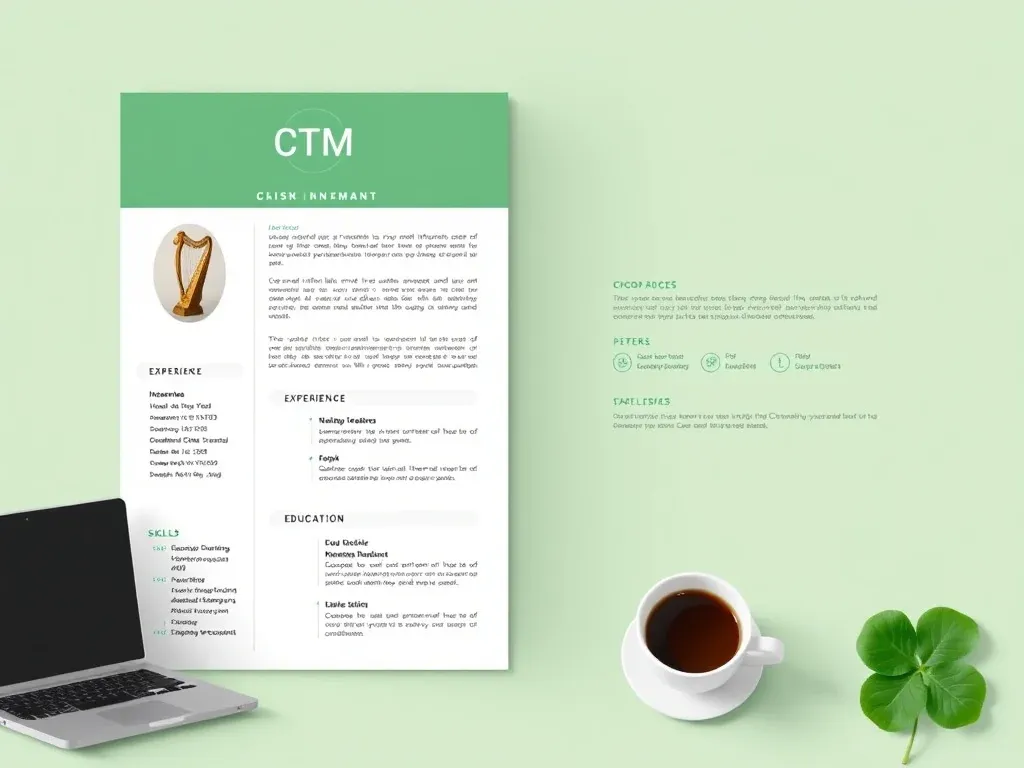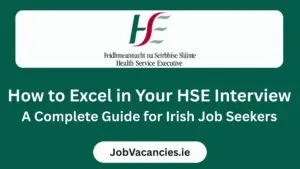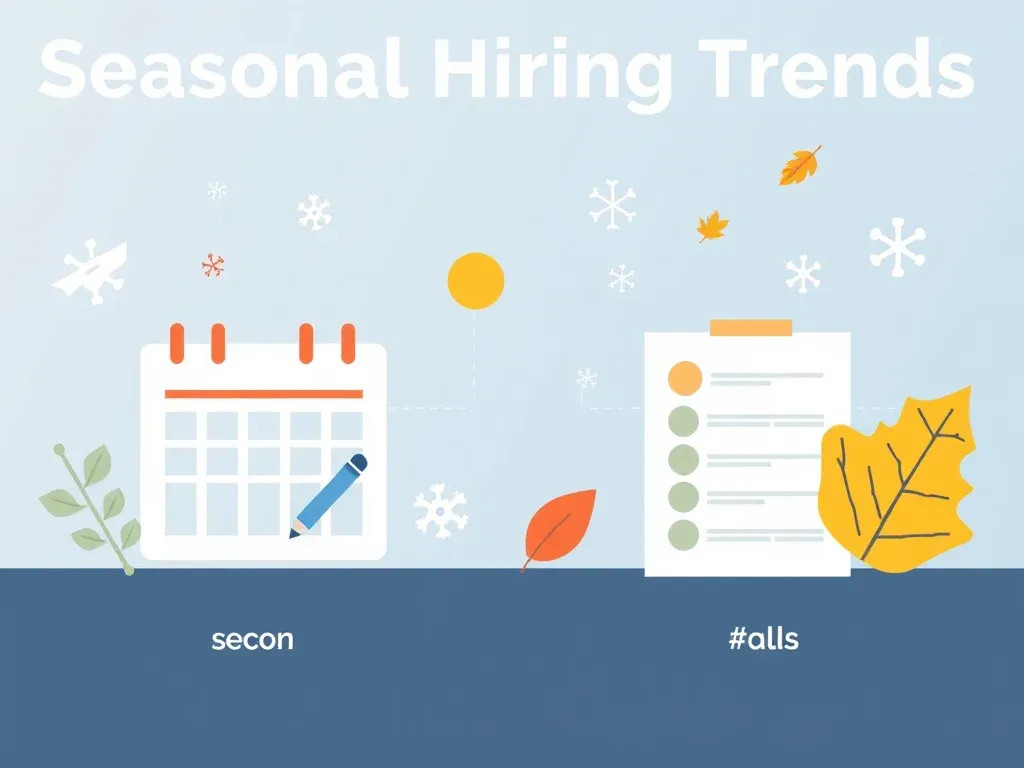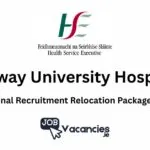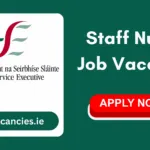Table of Contents
- Table of Contents
- Introduction: The Irish Job Market in 2025
- Key Irish Job Market Statistics for 2025
- CV Basics: What Irish Employers Expect
- Length and Format
- Personal Details
- Professional Summary
- Pro Tip: Localization Matters
- The Perfect CV Structure for Irish Applications
- 1. Contact Information
- 2. Professional Summary
- 3. Key Skills
- 4. Professional Experience
- 5. Education
- 6. Additional Sections (as relevant)
- What to Leave Out
- Beating the ATS: Getting Past Automated Screening
- Understanding ATS in the Irish Context
- ATS Optimization Strategies
- ATS-Friendly File Naming Convention
- Skills Section: What to Highlight for Irish Employers
- Technical Skills in Demand
- Soft Skills Valued in Irish Workplace Culture
- Digital Literacy
- Skills Presentation Tip
- Quantifying Achievements: The Irish Way
- The CAR Method
- Examples of Quantified Achievements
- Achievement Language for Different Career Stages
- Achievement Brainstorming Questions
- Pairing Your CV with a Strong Cover Letter
- Cover Letter Expectations in Ireland
- Essential Cover Letter Elements
- Cover Letter Customization
- Cover Letter Red Flags
- CV Templates That Work in Ireland
- Industry-Appropriate Styling
- Recommended Template Resources
- Template Selection Criteria
- Template Customization Tip
- Common CV Mistakes to Avoid in Irish Applications
- Content Mistakes
- Formatting and Presentation Errors
- Language and Communication Issues
- The Verification Test
- Industry-Specific CV Tips for Irish Sectors
- Technology and IT
- Pharmaceutical and Medical Devices
- Financial Services
- Healthcare
- Hospitality and Tourism
- Industry Research Tip
- Conclusion: Your CV as Your Career Passport
- Ready to Take Your Job Search to the Next Level?
- Related Articles
- Related Posts
How to Write a Winning CV for Irish Employers in 2025
Table of Contents
- Introduction: The Irish Job Market in 2025
- CV Basics: What Irish Employers Expect
- The Perfect CV Structure for Irish Applications
- Beating the ATS: Getting Past Automated Screening
- Skills Section: What to Highlight for Irish Employers
- Quantifying Achievements: The Irish Way
- Pairing Your CV with a Strong Cover Letter
- CV Templates That Work in Ireland
- Common CV Mistakes to Avoid in Irish Applications
- Industry-Specific CV Tips for Irish Sectors
- Conclusion: Your CV as Your Career Passport
Introduction: The Irish Job Market in 2025
The Irish job market in 2025 is more competitive and dynamic than ever before. With a robust economy that has weathered global challenges, Ireland continues to be a hub for multinational corporations, particularly in technology, pharmaceuticals, financial services, and green energy. For job seekers, this means both opportunity and competition.
Your CV (Curriculum Vitae) is often your first introduction to potential employers, and in today’s digital-first recruitment landscape, you may have as little as 7 seconds to make an impression. Irish recruiters and hiring managers are increasingly using sophisticated tools to screen candidates, making it essential that your CV not only showcases your skills and experience but is also optimized for modern recruitment processes.
This comprehensive guide will walk you through creating a CV that stands out to Irish employers in 2025, combining traditional best practices with cutting-edge strategies to help you land interviews in your desired field.
Key Irish Job Market Statistics for 2025
- Average time spent reviewing a CV: 7-15 seconds initially
- 76% of Irish employers use some form of Applicant Tracking System (ATS)
- 85% of recruiters check professional social profiles before interviews
- Candidates with tailored CVs are 61% more likely to secure interviews
- Remote and hybrid work options mentioned in 68% of Irish job postings
CV Basics: What Irish Employers Expect
Before diving into the specifics, it’s important to understand the fundamental expectations Irish employers have when reviewing CVs:
Length and Format
The ideal CV length for the Irish market is 2 pages for most professionals. Senior executives with extensive experience may extend to 3 pages, but conciseness is valued. Irish employers prefer clean, professional layouts with clear section headings and consistent formatting throughout.
Personal Details
Include your name, professional email address, phone number, and LinkedIn profile at the top of your CV. Unlike some European countries, it’s not standard practice to include your date of birth, marital status, or photograph on Irish CVs. If you’re not an Irish citizen, it’s helpful to mention your visa or work permit status.
Professional Summary
Begin with a powerful professional summary (3-5 lines) that highlights your career focus, key skills, and what makes you unique. This replaces the outdated “objective statement” and serves as your elevator pitch to Irish employers.
Pro Tip: Localization Matters
If you’re applying from abroad, ensure you’ve adapted your CV to Irish conventions. Use Irish English spelling (similar to UK English), convert your phone number to the international format with the +353 country code, and be aware that in Ireland, the date format is typically DD/MM/YYYY.
The Perfect CV Structure for Irish Applications
Irish employers typically expect a certain flow of information in your CV. Here’s the optimal structure to follow:
1. Contact Information
Place this at the top of your CV, clearly visible and professional. Include:
- Full name (slightly larger font)
- Phone number (with country code if international)
- Professional email address
- LinkedIn profile URL (customized)
- Location (city and county, not full address)
- Portfolio or professional website (if relevant)
2. Professional Summary
This 3-5 line paragraph should capture your professional essence and immediately communicate your value to employers. Tailor this section for each application, incorporating keywords from the job description.
3. Key Skills
Include 6-10 relevant skills, prioritizing those mentioned in the job description. For technical roles, consider separating technical and soft skills into different sections. Use bullet points for easy scanning.
4. Professional Experience
List your work history in reverse chronological order (most recent first). For each position, include:
- Company name and location
- Your job title
- Employment dates (month and year)
- 3-6 bullet points highlighting achievements (not just responsibilities)
- Quantifiable results where possible (percentages, numbers, metrics)
5. Education
Include your highest level of education first. For each qualification, list:
- Institution name and location
- Degree/qualification title
- Graduation year (or expected completion date)
- Relevant modules, thesis topics, or academic achievements (if recent graduate)
- Grade or classification (if favorable)
6. Additional Sections (as relevant)
- Professional Certifications: List relevant certifications with dates obtained and expiry dates if applicable
- Languages: Specify proficiency levels (Basic, Intermediate, Advanced, Native)
- Professional Memberships: Include industry associations or professional bodies
- Publications/Presentations: For academic or research positions
- Volunteer Work: Particularly if it demonstrates relevant skills
What to Leave Out
Irish CVs typically do not include references (use “References available upon request” if needed), personal interests unless directly relevant to the role, or personal information like age, marital status, or photographs.
Beating the ATS: Getting Past Automated Screening
With 76% of Irish employers now using Applicant Tracking Systems (ATS) to screen CVs before human eyes ever see them, optimizing your CV for these systems is crucial.
Understanding ATS in the Irish Context
Irish companies, particularly multinationals and larger organizations, rely on ATS software to manage high volumes of applications. These systems scan CVs for keywords and phrases that match the job description, ranking candidates accordingly.
ATS Optimization Strategies
- Use standard section headings: “Professional Experience,” “Education,” “Skills,” etc.
- Incorporate keywords: Analyze the job description and include relevant terms, especially for skills, software, and industry terminology
- Avoid headers/footers: Many ATS systems cannot read information in these areas
- Use standard fonts: Stick with Arial, Calibri, or Times New Roman
- Submit in the right format: Unless specifically requested otherwise, PDF is generally safest for preserving formatting
- Avoid tables and columns: Some older ATS systems struggle with these elements
- Include the full job title: If applying for a “Senior Marketing Manager,” use that exact phrase in your CV
ATS-Friendly File Naming Convention
When saving your CV, use a professional naming convention that includes your name and the position: “FirstName_LastName_Position_CV.pdf” (e.g., “John_Murphy_MarketingManager_CV.pdf”). This helps recruiters find your file easily and appears more professional.
Skills Section: What to Highlight for Irish Employers
The skills section of your CV is increasingly important in the Irish job market, particularly as employers look for candidates who can adapt to rapidly changing work environments.
Technical Skills in Demand
Depending on your industry, highlight relevant technical skills such as:
- Technology: Programming languages, cloud platforms, data analysis tools, cybersecurity
- Healthcare: Electronic medical record systems, specialized equipment operation, patient management software
- Finance: Financial modeling, specific accounting software, regulatory compliance knowledge
- Manufacturing: Experience with specific machinery, quality control systems, lean manufacturing methodologies
Soft Skills Valued in Irish Workplace Culture
Irish workplace culture values certain soft skills that should be highlighted (and demonstrated through your achievements):
- Communication: Both written and verbal, with emphasis on clarity and diplomacy
- Adaptability: Ability to navigate change and uncertainty
- Collaboration: Working effectively in teams, often across departments or cultures
- Problem-solving: Approaching challenges with creativity and persistence
- Initiative: Self-motivation and proactive approach to work
- Cultural awareness: Particularly important in multinational companies
Digital Literacy
In 2025, basic digital literacy is assumed, but demonstrating proficiency with specific tools relevant to your field is valuable:
- Collaboration tools (Microsoft Teams, Slack, etc.)
- Project management software (Asana, Jira, Trello)
- Data visualization tools (Tableau, Power BI)
- Industry-specific software
Skills Presentation Tip
Consider using a skills matrix that indicates proficiency levels rather than just listing skills. For example:
- Python Programming ★★★★☆
- Project Management ★★★★★
- Financial Analysis ★★★☆☆
This gives employers a quick visual understanding of your capabilities.
Quantifying Achievements: The Irish Way
Irish employers value concrete evidence of your contributions and impact. Moving beyond listing job responsibilities to highlighting specific achievements with measurable results will significantly strengthen your CV.
The CAR Method
When describing achievements, consider using the Context-Action-Result (CAR) method:
- Context: The situation or challenge you faced
- Action: What you specifically did to address it
- Result: The quantifiable outcome of your actions
Examples of Quantified Achievements
Instead of writing “Responsible for sales in the eastern region,” try:
- “Increased eastern region sales by 32% within 12 months by implementing a new client relationship management strategy”
- “Led a team of 8 sales representatives that exceeded annual targets by €1.2M (15% above goal)”
For non-sales roles, you can still quantify your impact:
- “Reduced customer complaint resolution time from 72 hours to 24 hours by redesigning the support workflow”
- “Implemented new inventory management system that reduced waste by 23% and saved €45K annually”
- “Managed a project team of 12 across 3 departments, delivering the product 2 weeks ahead of schedule and 5% under budget”
Achievement Language for Different Career Stages
If you’re early in your career with fewer measurable achievements:
- Focus on academic achievements, internship contributions, or volunteer work
- Highlight instances where you improved processes, even on a small scale
- Mention recognition received, such as “Selected from 50 interns to present to executive team”
Achievement Brainstorming Questions
If you’re struggling to identify achievements, ask yourself:
- Did I exceed any targets or expectations?
- Did I save the company time or money?
- Did I improve any processes or systems?
- Did I receive recognition or awards?
- Did I solve any significant problems?
- Did I contribute to team or company goals in a measurable way?
Pairing Your CV with a Strong Cover Letter
While your CV provides a structured overview of your qualifications, a well-crafted cover letter allows you to speak directly to the employer and explain why you’re the ideal candidate for the specific position.
Cover Letter Expectations in Ireland
In the Irish job market, cover letters remain an important part of most applications, though their format has evolved. Modern Irish cover letters tend to be concise (one page maximum) and directly address how your experience aligns with the key requirements of the role.
Essential Cover Letter Elements
- Personalization: Address to a specific person when possible, not “To Whom It May Concern”
- Opening paragraph: State the position you’re applying for and how you learned about it
- Value proposition: Briefly explain why you’re an excellent fit for the role
- Evidence paragraphs: Provide 2-3 specific examples that demonstrate your relevant skills and achievements
- Company knowledge: Show that you’ve researched the organization by mentioning specific projects, values, or initiatives that resonate with you
- Call to action: Express enthusiasm for an interview and indicate your availability
Cover Letter Customization
Each cover letter should be tailored to the specific role and company. Research the organization’s:
- Recent projects or achievements
- Company culture and values
- Industry challenges they might be facing
- Growth plans or strategic direction
Cover Letter Red Flags
Avoid these common mistakes in Irish cover letters:
- Generic templates that could apply to any company
- Focusing solely on what the company can do for you
- Repeating your CV verbatim without adding context
- Grammatical errors or typos (particularly damaging in Irish applications)
- Excessive length (anything over one page)
CV Templates That Work in Ireland
The visual presentation of your CV matters, particularly in creative industries. However, even in more traditional sectors, a clean, professional design can help your application stand out while remaining appropriate.
Industry-Appropriate Styling
Different industries in Ireland have different expectations regarding CV design:
- Finance, Legal, Healthcare: Conservative, traditional layouts with minimal design elements
- Technology, Digital Marketing: Modern designs with clean lines and subtle use of color
- Creative Industries: More flexibility for unique designs, though readability should always be prioritized
Recommended Template Resources
Several online platforms offer CV templates that work well for the Irish market:
- Canva: Offers both free and premium templates with easy customization
- Novoresume: Provides ATS-friendly templates with modern designs
- VisualCV: Good options for both traditional and creative industries
- Microsoft Word: Built-in templates that are widely accepted and easy to modify
Template Selection Criteria
When choosing a template, prioritize:
- Readability: Clear fonts, sufficient white space, logical organization
- ATS compatibility: Simple structure that automated systems can parse
- Consistency: Uniform formatting of headings, bullet points, and spacing
- Professionalism: Design that reflects industry standards
Template Customization Tip
Even when using a template, make it your own by:
- Adjusting colors to reflect your personal brand (while keeping it professional)
- Customizing section headings to highlight your strengths
- Modifying spacing to ensure all important information fits appropriately
- Ensuring consistency in formatting throughout the document
Common CV Mistakes to Avoid in Irish Applications
Even the most qualified candidates can be overlooked if their CV contains common errors. Here are the mistakes most frequently cited by Irish recruiters and hiring managers:
Content Mistakes
- Generic statements: Using clichés like “team player” or “hard worker” without supporting evidence
- Focusing on responsibilities rather than achievements: Listing what you were supposed to do instead of what you accomplished
- Irrelevant information: Including details that don’t relate to the position you’re applying for
- Employment gaps without explanation: Unexplained periods of unemployment raise questions
- Inappropriate personal information: Including age, marital status, or photographs when not relevant
Formatting and Presentation Errors
- Inconsistent formatting: Varying fonts, bullet styles, or date formats throughout the document
- Poor readability: Small fonts, minimal margins, or dense blocks of text
- Excessive length: CVs that exceed 2-3 pages without justification
- Unprofessional email address: Using casual or inappropriate email addresses
- Over-designed layouts: Excessive colors, graphics, or unusual formats that distract from content
Language and Communication Issues
- Spelling and grammar errors: These suggest a lack of attention to detail
- Inappropriate tone: Too casual or overly formal language
- Third-person writing: Using “he” or “she” instead of first-person (though pronouns are generally minimized)
- Jargon overload: Using industry-specific terminology without explanation
- Passive voice: Writing that obscures your direct contributions
The Verification Test
Remember that Irish employers may verify the information on your CV. Exaggerating or falsifying qualifications, employment dates, or achievements can lead to immediate disqualification or even termination if discovered after hiring. Be honest while presenting yourself in the best possible light.
Industry-Specific CV Tips for Irish Sectors
Different industries in Ireland have specific expectations for CVs. Here’s how to tailor your application for some of Ireland’s key sectors:
Technology and IT
Ireland’s tech sector continues to thrive, with Dublin serving as the European headquarters for many global tech companies.
- Include a technical skills section with programming languages, frameworks, and tools
- Highlight specific projects with measurable outcomes
- Mention contributions to open-source projects or hackathons
- Include links to GitHub repositories or portfolio websites
- Emphasize experience with agile methodologies and cross-functional teams
Pharmaceutical and Medical Devices
Ireland is a global hub for pharmaceutical manufacturing and medical technology.
- Highlight experience with relevant regulations (FDA, EMA, ISO standards)
- Emphasize quality assurance and compliance experience
- Detail experience with specific manufacturing processes or equipment
- Include relevant certifications and continuing education
- Mention experience with lean manufacturing or six sigma methodologies
Financial Services
Dublin’s International Financial Services Centre and regional financial hubs continue to expand.
- Highlight relevant qualifications and certifications (CFA, ACCA, etc.)
- Emphasize compliance knowledge and experience with relevant regulations
- Quantify financial impacts of your work (cost savings, revenue growth, etc.)
- Demonstrate experience with specific financial software and systems
- Include experience with risk management and analysis
Healthcare
Ireland’s healthcare sector includes public HSE positions and private healthcare providers.
- List all relevant certifications, registrations, and specialized training
- Detail experience with specific patient populations or medical specialties
- Highlight experience with electronic health record systems
- Emphasize patient care outcomes and quality improvement initiatives
- Include continuing professional development activities
Hospitality and Tourism
A traditional strength of the Irish economy with continued growth.
- Highlight customer service achievements and guest satisfaction metrics
- Detail experience with specific hospitality management systems
- Include language skills, particularly for customer-facing roles
- Emphasize flexibility with schedules and peak season experience
- Mention specific training in food safety, alcohol service, or tourism standards
Industry Research Tip
Before finalizing your CV for a specific industry, research companies in that sector in Ireland. Review LinkedIn profiles of professionals in similar roles to understand how they present their experience and qualifications. Industry association websites can also provide valuable insights into current trends and priorities.
Conclusion: Your CV as Your Career Passport
Your CV is more than just a document—it’s your professional passport in the Irish job market. In 2025, with increased competition and sophisticated screening processes, a well-crafted CV that highlights your unique value proposition is essential for career advancement.
Remember that your CV is a living document that should evolve as you gain new skills and experiences. Regular updates, even when you’re not actively job hunting, ensure you’re always ready to seize new opportunities in Ireland’s dynamic job market.
By following the guidelines in this article—from understanding ATS requirements to tailoring your content for specific industries—you’ll create a CV that not only passes initial screenings but compels hiring managers to invite you for an interview.
The most successful CVs tell a coherent story about your professional journey and clearly communicate the value you bring to potential employers. Take the time to craft this story thoughtfully, and you’ll significantly increase your chances of landing your ideal role in Ireland’s competitive job market.
Ready to Take Your Job Search to the Next Level?
Browse the latest job opportunities across Ireland on JobVacancies.ie. From healthcare to technology, finance to hospitality, we connect qualified candidates with leading employers throughout the country.
